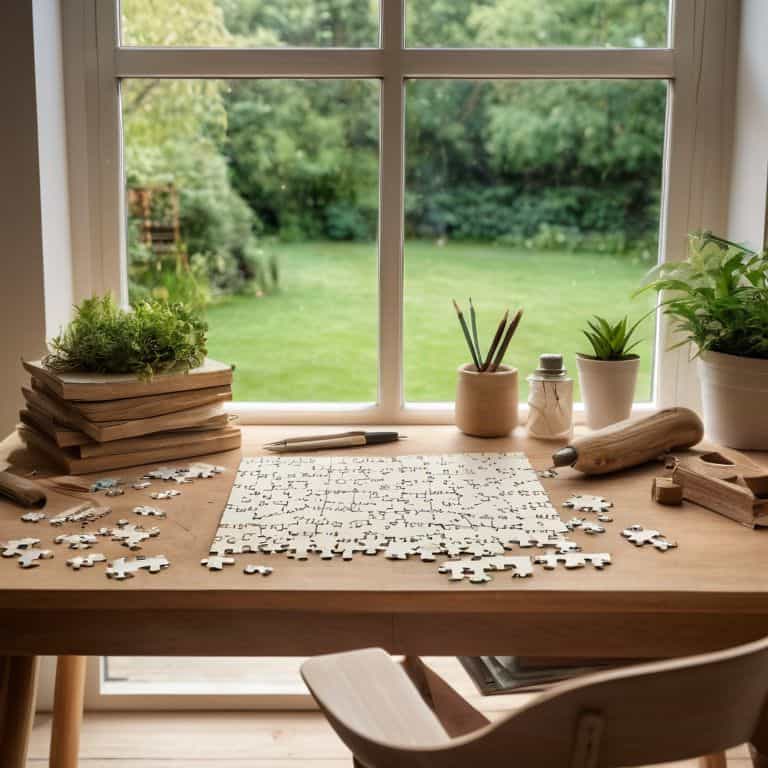I still remember the day I realized that making time for hobbies wasn’t a luxury, but a necessity. I was working as a librarian, surrounded by books and knowledge, yet I found myself struggling to dedicate time to my own passion for bookbinding. It was then that I discovered the common myth that we need to have large blocks of free time to pursue our hobbies. But the truth is, it’s the small, consistent moments that add up and make a difference. Learning how to make time for hobbies is not about finding an extra hour in our busy schedules, but about being intentional with the time we have.
In this article, I’ll share with you my personal approach to creating space for the things that bring us joy. You can expect practical advice on how to reassess your schedule, prioritize your hobbies, and make incremental changes that will have a significant impact on your well-being. By the end of this guide, you’ll have a clear understanding of how to make time for hobbies that nourish your mind, body, and soul. My goal is to empower you with the tools and confidence to make time for the activities that make life worth living, and to show you that it’s possible to breathe, create, and repeat, even in the midst of a busy life.
Table of Contents
Guide Overview: What You'll Need

Total Time: 1 hour 15 minutes
Estimated Cost: $0 – $10
Difficulty Level: Easy
Tools Required
- Calendar or Planner (physical or digital)
Supplies & Materials
- Pen or Pencil (for scheduling)
Step-by-Step Instructions
- 1. First, let’s start small by identifying the hobbies you want to make time for – think about the activities that bring you joy and help you unwind, whether it’s reading, painting, or gardening. Take a few minutes to brainstorm and write down your top three hobbies, and don’t worry too much about how you’ll fit them in just yet.
- 2. Next, take a close look at your current schedule and see where you can find some hidden pockets of time – maybe you have a long commute, or perhaps you usually spend your lunch break scrolling through your phone. Consider how you can repurpose this time to work on your hobbies, even if it’s just for a few minutes each day.
- 3. Now, let’s talk about setting realistic goals – it’s easy to get excited about starting a new hobby, but it’s essential to be realistic about how much time you can dedicate to it. Start by committing to a small amount of time each day or week, and gradually increase it as you become more comfortable with your new routine.
- 4. To make the most of your time, try to batch similar tasks together – for example, if you’re a writer, you might dedicate one day a week to writing, and another day to editing and research. This can help you stay focused and avoid context-switching, which can be a significant time-suck.
- 5. It’s also crucial to learn to say no to non-essential commitments that might interfere with your hobby time – remember, taking care of yourself and pursuing your passions is essential to your well-being, and it’s okay to prioritize them. Practice saying no to things that don’t align with your goals, and watch how it frees up space in your schedule.
- 6. As you start making time for your hobbies, be sure to track your progress and reflect on what’s working and what’s not – use a journal, spreadsheet, or habit tracker to monitor your progress, and don’t be afraid to adjust your schedule as needed. Celebrate your small wins, and don’t be too hard on yourself if you miss a day or two.
- 7. Finally, remember that consistency is key – it’s better to spend a small amount of time on your hobby each day than to try to cram all your creative time into one or two marathon sessions. Aim to make your hobby a regular part of your routine, and watch how it becomes a source of joy and relaxation in your life.
Finding Time for Hobbies

As we explore the world of balancing work and hobbies, it’s essential to recognize that prioritizing leisure activities is not a luxury, but a necessity. By allocating time for the things that bring us joy, we can recharge and refocus, leading to increased productivity in all areas of life. I’ve found that scheduling hobby time, just as I would any other important appointment, helps me stay committed to my own creative pursuits, like bookbinding and urban gardening.
When it comes to hobby scheduling tips, I recommend starting small. Begin by dedicating a manageable chunk of time each week to your chosen activity, and gradually increase the duration as you become more comfortable. It’s also crucial to learn to say no to non-essential tasks that may interfere with your hobby time, allowing you to maintain a healthy work-life balance. By being mindful of our commitments and learning to prioritize, we can create space for the things that truly nourish our minds and souls.
By incorporating hobbies into our daily routine, we can experience the benefits of making time for self-care. Whether it’s painting, playing music, or simply taking a walk, engaging in activities we love can have a profound impact on our well-being. As someone who’s passionate about productivity for creative pursuits, I’ve seen firsthand how allocating time for hobbies can lead to increased inspiration, motivation, and overall satisfaction. By embracing our creative side and prioritizing leisure activities, we can cultivate a more fulfilling and balanced life.
Balancing Work and Hobby Scheduling
To balance work and hobby scheduling, I recommend starting by assessing your weekly routine. Take a close look at your calendar and identify any pockets of free time that could be dedicated to your hobbies. Perhaps it’s an hour each morning before work, or a few hours on the weekend. By scheduling your hobbies in a way that complements your work schedule, you can ensure that you’re making time for the things that bring you joy without compromising your professional responsibilities.
I like to think of it as creating a harmony between work and play. By prioritizing both, you can achieve a sense of balance that nourishes your mind, body, and soul. Remember, it’s all about finding a rhythm that works for you, and being gentle with yourself as you navigate the process.
Prioritizing Leisure for Self Care
To truly prioritize leisure for self-care, we need to recognize that hobbies aren’t just nice-to-haves, but necessities for our well-being. By scheduling time for activities that bring us joy, we’re not only recharging but also becoming more resilient to life’s stresses. Think of it as investing in your mental and emotional health – just as you would any other important aspect of your life.
Let’s make a conscious decision to treat our hobby time with the same importance as any other commitment. This might mean saying no to non-essential tasks or delegating responsibilities when possible, to free up space for what nourishes our minds and souls. By doing so, we’re reminding ourselves that self-care isn’t selfish, but essential to living a balanced, fulfilling life.
Weaving Hobbies into Your Busy Life: 5 Essential Tips
- Start small: Begin with short, manageable sessions of your hobby, even just 10-15 minutes a day, to make it feel less overwhelming and more achievable
- Schedule it in: Treat your hobby time as non-negotiable appointments and write them down in your calendar, just as you would any other important commitment
- Find a hobby buddy: Having someone to share the experience with can make it more enjoyable and help you stay committed, plus it’s a great way to socialize
- Be flexible: Don’t be too hard on yourself if you miss a day or two, simply get back on track as soon as you can and remember that consistency is key, not perfection
- Make it convenient: Keep your hobby supplies or equipment in an easy-to-access spot, so you can quickly dive into your activity without having to spend time searching for what you need
Key Takeaways to Nurture Your Hobby Time
Remember, it’s all about creating a gentle balance: by allocating specific times for your hobbies, you can ensure they coexist harmoniously with your work and personal life.
Prioritizing self-care through hobbies is essential; it’s not just about finding time, but also about recognizing the value these activities bring to your mental and emotional well-being.
Start small, be consistent, and be patient with yourself as you work on incorporating your hobbies into your daily or weekly routine – celebrate each tiny victory, and watch how it transforms your life.
Embracing the Art of Gentle Time Management
As we weave our hobbies into the fabric of our daily lives, remember that every small moment of creation is a testament to the beauty of prioritizing our own joy – and that’s a masterpiece worth making time for.
Hannah Jensen
Embracing the Joy of Hobbies

As we’ve explored throughout this guide, making time for hobbies requires a thoughtful balance of scheduling, prioritization, and a willingness to say yes to the things that bring us joy. We’ve discussed the importance of finding gentle space for our hobbies, and how this can lead to improved self-care and a greater sense of fulfillment. By breaking down our goals into manageable steps, and being intentional about how we use our time, we can create a more harmonious relationship between our work and leisure activities.
As you move forward, remember that the key to sustaining your hobbies is to approach them with kindness and patience. Don’t be too hard on yourself if you miss a day or two, but instead focus on the progress you’re making and the joy that your hobbies bring to your life. With time and practice, you’ll find that making space for your hobbies becomes second nature, and that the benefits of doing so will ripple out into all areas of your life, leading to a more balanced, happy, and fulfilling existence.
Frequently Asked Questions
How can I ensure I'm making time for hobbies without feeling guilty about taking time away from work or family responsibilities?
Let’s reframe that guilt: remember, nurturing your hobbies is self-care, which actually benefits your work and family life in the long run. By scheduling hobby time, you’re investing in your own well-being, making you more present and energized for loved ones and responsibilities.
What if my hobby requires a significant amount of time or resources, how can I balance that with my other commitments?
That’s a great question. For hobbies that require a lot of time or resources, I recommend dedicating a specific day or weekend to them, and scheduling smaller, related tasks for weekdays, like planning or preparation, to make the most of your time and keep your hobby alive without overwhelming your daily routine.
Are there any specific hobbies that are better suited for busy schedules, and how can I incorporate them into my daily routine?
For busy schedules, I recommend hobbies like journaling, drawing, or urban gardening – they’re easy to fit into small moments. Try dedicating 10-15 minutes a day to your chosen hobby, whether it’s during your morning coffee or right before bed. Even small pockets of time can be transformative, allowing you to breathe and create amidst chaos.
